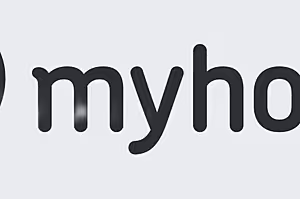
Now that you have found your "perfect" business location and property, it is time to read the small print on your lease before signing. The commercial lease agreement is one of the most complicated agreements any entrepreneur will sign. Your lease will invariably be one of the biggest outgoings for your business, so it is important to make sure that you are getting value for your money from the outset.
You must understand some key points about any lease before signing:
Protection & Attention to Detail:
The lease should protect both the tenant and the landlord. It is very difficult to get out of a lease agreement without financial penalty.
Always read the lease thoroughly and have your legal adviser or solicitor look over it as there will be legal jargon that you may not fully understand. Your solicitor will also examine the small print in detail. Don't let the landlord or agent put you under pressure to sign the lease no matter how many prospective tenants they may have.
Lease Payments:
Be clear on the monthly lease payments. Most commercial leases will be charged on the basis of a price per square foot/metre. There may be other factors that influence your payments such as building management fees and parking. Make sure you are aware of what is included in these payments so there are no surprises waiting for you. Some leases may have an escalation clause whereby the landlord can increase the rent to pass on any increases in overheads that they might incur. It would be a good idea to include a cap on lease payments within the lease. Make sure the lease clearly states the rules about increases in rent. You don't want to end up with a massive rent hike half way through your lease.
Rent Increases:
How often will the rent increase? This is normally annual but make sure it is written in black and white. It's quite normal for rents to increase in line with a rising property market. What happens in a falling market? Will your rent fall, remain the same or rise?
Negotiate timelines and amounts of any increase before you sign the lease so that all these scenarios are covered.
Responsibility:
Be clear about who is responsible for paying what. What expenses will the landlord cover? Are you responsible for any other payments other than the rent? Who is responsible for maintenance and general wear and tear? What about utilities? Do you have to pay for recycling, waste disposal, water charges or is this covered by the rent? What happens if the air conditioning breaks? Will you have to fork out for all these additional expenses or are these covered by your lease payments?
Inability to Pay Rent:
What happens in the event of business failure and you can't afford to pay the lease? Some commercial lease agreements will require a personal guarantee from the business owner to cover the rent payments personally in the event that the business goes under. This means that you may still be liable to pay the lease should the business go under. Make sure that the lease agreement clearly stipulates what should happen and who pays what in this event? You don't want to end up out of work and worse still even further out of pocket.
In conclusion, be clear on every detail of the lease agreement. If you are not clear, then make sure your solicitor clarifies every item for you.
- What exact space you are renting?
- When the rent is due?
- What is the exact rent and any late payment fees incurred?
- Who is responsible for what?
Advertisement




